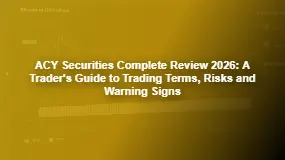Abstract:Asian shares stalled and oil prices slid on Monday as coronavirus lockdown in Shanghai looked set to hit global activity, while throwing another wrench into supply chains that could add to inflationary pressures.

Asian shares faltered and oil prices slid on Monday as a coronavirus lockdown in Shanghai hit economic activity, while the yen extended its stomach-churning descent as the Bank of Japan stood in the way of higher yields.
Chinas financial hub of 26 million people told all firms to suspend manufacturing or have people work remotely in a two-stage lockdown over nine days.
The spread of restrictions in the worlds biggest oil importer saw Brent skid $3.39 to $117.26, while U.S. crude fell $3.41 to $110.49. [O/R]
Risk sentiment was helped by hopes of progress in Russian-Ukranian peace talks to be held in Turkey this week after President Volodymyr Zelenskiy said Ukraine was prepared to discuss adopting a neutral status as part of a deal.{nL2N2VU0EH]
The equity action was muted with MSCIs broadest index of Asia-Pacific shares outside Japan flat. The index is down 2.1% for the month but well above recent lows.
Chinese blue chips shed 0.8%. Japans Nikkei lost 0.4%, but is still almost 6% firmer for the month as a sinking yen promised to boost exporter earnings.
S&P 500 stock futures eased 0.3%, while Nasdaq futures slipped 0.4%. EUROSTOXX 50 futures managed to add 0.3% and FTSE futures 0.2%.
Wall Street has so far proved remarkably resilient to a radically more hawkish Federal Reserve. Markets are pricing in eight hikes for the remaining six policy meetings this year, taking the funds rate to 2.50-2.75%.
Even that outlook is not aggressive enough for some. Citi last week forecast 275 basis points of tightening this year including half-point hikes in May, June, July and September.
“We expect the Fed to continue hiking into 2023, reaching a policy rate target range of 3.5-3.75%,” wrote the analysts at Citi. “Risks to the terminal policy rate remain to the upside given the upside risk to inflation.”
The key data event of this week will be U.S. payrolls on Friday when another solid increase of 475,000 is expected with the jobless rate hitting a new post-pandemic low of 3.7%. Also due are a bevy of surveys on global manufacturing and readings on U.S. and EU inflation.
“The U.S. data will help shape expectations whether the tightening in financial conditions is starting to spill into the broader economy,” said analysts at NatWest Markets.
Yields on 10-year Treasuries jumped 33 basis points last week and are up a staggering 71 basis points on the month at 2.53%, sharply lifting U.S. mortgage rates.
“The next major theme will be rising fears of a recession as the Fed hikes into decelerating growth, potentially supporting a peak in yields into this summer,” cautioned NatWest.
In currency markets, the Japanese yen has been the major loser as policymakers there keep yields near zero and sky-high commodity prices send its import bill ballooning.
The Bank of Japan on Monday reinforced its super-loose policy by offering to buy as many bonds as needed to keep 10-year yields under 0.25%.
That saw the dollar scale a fresh six-year peak of 123.16 yen, giving it a gain of 6.9% for the month. Likewise, the resource-rich Australian dollar has climbed more than 10% to reach 92.44 yen.
Even the otherwise ailing euro is up 4% on the yen this month at 134.56. The single currency has lost about 2.3% on the dollar in the same period, but at $1.0954 is some way above the recent two-year trough of $1.0804.
The dive in the yen has kept the U.S. dollar index up at 99.098, with a gain for the month of 2.5%.
In commodity markets, gold softened to $1,947 an ounce, though it was still up around 2% on the month. [GOL/]










